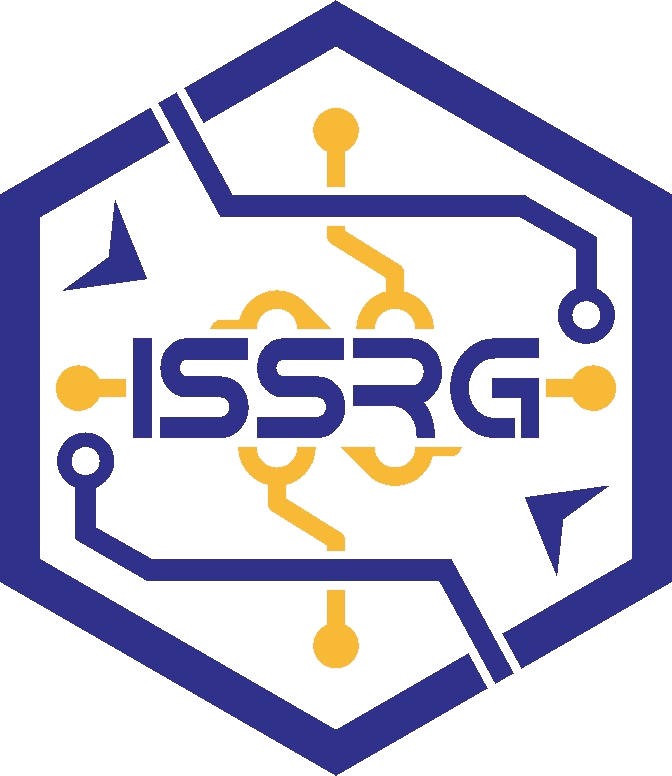IOT BASED SOIL MOISTURE MONITORING AND SOIL MOISTURE PREDICTION USING LINEAR REGRESSION (CASE STUDY OF VINCA PLANTS)
Abstract
Full Text:
PDFReferences
Karyati, R. O. Putri, and M. Syafrudin, “Soil Temperature and Humidity at Post Mining Revegetation in PT Adimitra Baratama Nusantara, East Kalimantan Province,” Agrifor, vol. 17, no. 1, pp. 103–114, 2018.
Rahmi. H. Nurhaeni. S, Muharam, “Pengaruh Berbagai Jenis Zat Pengatur Tumbuh dan Asal Stek Batang Terhadap Pertumbuhan Vegetatif Bibit Tanaman Tapak Dara (Catharanthus roseus (L.) G. Don),” Jurnal Agrotek Indonesia, vol. 2, no. 5, p. 47, 2020.
Husdi, “MONITORING KELEMBABAN TANAH PERTANIAN MENGGUNAKAN SOIL MOISTURE SENSOR FC-28 DAN ARDUINO UNO,” Jurnal Ilmiah, vol. 10, pp. 237–243, 2018, [Online]. Available: https://media.neliti.com/media/publications/269207-monitoring-kelembaban-tanah-pertanian-me-fadb929a.pdf
S. A. Kalaian and R. Kasim, “Predictive Analytics,” in Decision Management: Concepts, Methodologies, Tools, and Applications, 2017. doi: 10.4018/978-1-5225-1837-2.ch004.
R. Safitri, W, “Analisis Korelasi Pearson Dalam Menentukan Hubungan Antara Kejadian Demam Berdarah Dengue Dengan Kepadatan Penduduk Di Kota Surabaya Pada Tahun 2012 - 2014,” Jurnal Kesehatan Masyarakat, vol. 1, no. 3, pp. 1–9, 2014.
J. Han and M. Kamber, Data Mining: Concepts and Techniques (2nd edition). 2006. doi: 10.1007/978-3-642-19721-5.
I. Nabillah and I. Ranggadara, “Mean Absolute Percentage Error untuk Evaluasi Hasil Prediksi Komoditas Laut,” JOINS (Journal of Information System), vol. 5, no. 2, pp. 250–255, 2020, doi: 10.33633/joins.v5i2.3900.
Usamah Jaisyurahman, Desta Wirnas, Trikoesoemaningtyas, and Dan Heni Purnamawati, “Dampak Suhu Tinggi terhadap Pertumbuhan dan Hasil Tanaman Padi,” Jurnal Agronomi Indonesia (Indonesian Journal of Agronomy), vol. 47, no. 3, pp. 248–254, 2020, doi: 10.24831/jai.v47i3.24892.
S. Sukarman, I. Darwati, and D. Rusmin, “KARAKTER MORFOLOGI DAN FISIOLOGI TAPAK DARA (Vinca rosea L.) PADA BEBERAPA CEKAMAN AIR,” Jurnal Penelitian Tanaman Industri, vol. 6, no. 2. p. 50, 2020. doi: 10.21082/jlittri.v6n2.2000.50-54.
G. Snipes, “Product Review : Google Data Studio,” J Libr Sch Commun, vol. 6, no. 1, p. 5, 2018.
DOI: http://dx.doi.org/10.26798/jiss.v2i1.929
Article Metrics
Abstract view : 885 timesPDF - 870 times
Refbacks
- There are currently no refbacks.
Copyright (c) 2023 Kuindra Iriyanta, Bambang Purnomosidi Dwi Putranto, Widyastuti Andriyani
This work is licensed under a Creative Commons Attribution-ShareAlike 4.0 International License.
- https://jurnal.narotama.ac.id/
- https://www.spb.gba.gov.ar/campus/
- https://revistas.unsaac.edu.pe/
- https://proceeding.unmuhjember.ac.id/
- https://ejournal.uki.ac.id/
- https://random.polindra.ac.id/
- https://scholar.ummetro.ac.id/
- https://ejournal.uika-bogor.ac.id/
- https://www.iejee.com/
- https://e-journal.iainptk.ac.id/
- https://journal.stitpemalang.ac.id/
- https://revistas.unimagdalena.edu.co/
- https://catalogue.cc-trieves.fr/
- https://revistas.tec.ac.cr/
- https://jurnal.poltekapp.ac.id/
- https://ojs.ucp.edu.ar/
- https://ihcway.sakura.ne.jp/
- http://www.apps.buap.mx/
- http://media-ojs.vls.icm.edu.pl/
- https://saber.unioeste.br/
- https://cinnda.org/
- https://jurnal.untidar.ac.id/
- https://ojs.adzkia.ac.id/
- https://supp.journalrmc.com/
- https://journal.thamrin.ac.id/
- https://ejurnal.unima.ac.id/
- https://journal.umpalopo.ac.id/
- https://ejournal.upnvj.ac.id/
- https://journal.ittelkom-pwt.ac.id/
- https://ojs.unpatompo.ac.id/
- https://jurnal.staim-probolinggo.ac.id/
- https://jurnal.ppi.ac.id/
- https://revistas.urp.edu.pe/


1.png)



